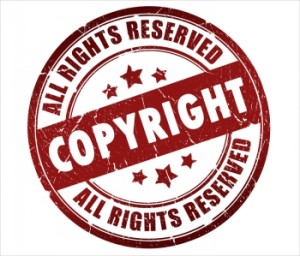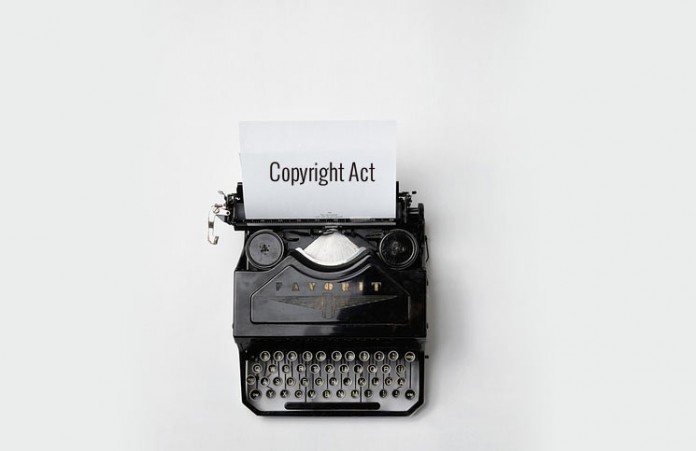Copyright relates to artistic creations such as paintings, poems, novels, music, cinematographic works, etc. Copyright relates to the exclusive right of making a copy of the literary or artistic work such as issuing copies of the work to the public, to make any translation or adaptation of the work, to include the work in any cinematograph film, etc. which can be made by the author or with his authorization. The author shall have certain rights in his creation which include the right to prevent any distortion of his work. Under the Copyright Act of 1957 (Act) both the economic rights and moral rights of the author are protected. These moral rights of the author are called Special Rights. Moral rights are the English translation of the French phrase Droit moral. They are in addition to the economic rights, and they are inalienable. Moral rights safeguard personal and reputational rights, which permit authors to defend both the integrity of their works and the use of their names.[1]
Section 57 of the Act
Independent of the author’s copyright and even after the assignment either wholly or partially of the said copyright, the author of a work shall have the special right-
(a) To claim authorship of the work; and
 (b)To restrain or claim damages in respect of any distortion, mutilation, modification or other act about the said work which is done before the expiration of the term of copyright if such distortion, mutilation, modification or other act would be prejudicial to his honor or reputation.
(b)To restrain or claim damages in respect of any distortion, mutilation, modification or other act about the said work which is done before the expiration of the term of copyright if such distortion, mutilation, modification or other act would be prejudicial to his honor or reputation.
Article 6bis of the Berne Convention directs the member States to protect the moral rights of the author.
Article 6ibs
Independent of the author’s economic rights, and even after the transfer of the said rights, the author shall have the right to claim authorship of the work and to object to any distortion, modification of, or other derogatory action in relation to the said work, which would be prejudicial to the author’s honour or reputation.
According to David Bainbridge, there are four rights within the moral right designation being:
- The right to be identified as the author of work or director of a film, the ‘paternity right.’
- The right of an author of work or director of a
 film to object to derogatory treatment of that work or film, the ‘integrity right.’
film to object to derogatory treatment of that work or film, the ‘integrity right.’ - A general right that every person has not to have a work falsely attributed to him
- The commissioner’s right to privacy in respect of a photograph or film made for private and domestic purposes.[2]
The paternity right may also be called the ‘identification right’ or ‘attribution right.’ Along with these rights, the author has also got the economic right to sell the works for a valuable consideration.
The rationale behind moral right was also explained in the case of Amar Nath Sehgal vs. Union of India [3] In which the Delhi High Court held that “In the material world, laws are geared to protect the right to equitable remuneration. But life is beyond the material. It is temporal as well. Many of us believe in the soul. Moral rights of the author are the soul of his works. The author has a right to preserve, protect and nurture his creations through his moral rights.”
Modified form of work should look different from the original
Once the author’s rights are transferred, the licensee has a right to make certain necessary modifications to suit his situation, but the modifications shouldn’t be in such a way that the modified form looks quite different from the original which may affect the reputation of the author.
In the case of K.P.M Sundaram vs. Rattan Prakashan Mandir[4] It was held that the words “or other modification” appearing therein, will have to be read ejusdem generis with the words “distortion” and “mutilation.” The Court stated that the modification should not be so serious that the modified form of the work looks quite different from the original.
Moral rights remain with the author even after transfer
In the case of Mannu Bhandari v. Kala Vikash Pictures Pvt. Ltd. and Anr,[5] The Delhi High Court has held that “These rights (moral rights) are independent of author’s copyright and the remedies open to the author under Section 55. In other words, Section 57 confers additional rights on the author of a literary work as compared to the owner of a general copyright. The special protection of the intellectual property is emphasized by the fact that the remedies of a restraint order or damages can be claimed: “even after the assignment either wholly or partially of the said copyright.”
Thus even though an author may sell his economic rights to a publisher for publication, the moral rights shall remain with him which cannot be taken away from him.
Can Moral rights be waived off?
Previously moral rights were treated like that of fundamental rights to an individual as they are not merely for the benefit of the individual but as a matter of public policy, for the benefit of the general public.
 But the single judge bench of the Delhi High Court in the case of Sartaj Singh Pannu vs Gurbani Media Pvt Ltd & Anr in relation to whether the Director can also waive his moral right if any to be acknowledged as the Director of a film, held that “the Court is not prepared to go as far as to deny the right of a Director to waive his right to be credited as such if for any reason he does not want his name to be associated with the film. As long as the waiver is voluntary, it cannot be said to be opposed to public policy.” Thus after this decision, the moral rights can be waived by the author if he wants to.
But the single judge bench of the Delhi High Court in the case of Sartaj Singh Pannu vs Gurbani Media Pvt Ltd & Anr in relation to whether the Director can also waive his moral right if any to be acknowledged as the Director of a film, held that “the Court is not prepared to go as far as to deny the right of a Director to waive his right to be credited as such if for any reason he does not want his name to be associated with the film. As long as the waiver is voluntary, it cannot be said to be opposed to public policy.” Thus after this decision, the moral rights can be waived by the author if he wants to.
Conclusion
Thus time and again, moral rights of an author have been held to be sacrosanct by the Courts, and the Moral rights do offer sufficient protection to an author to safeguard his work, even after he transfers it in any manner whatsoever to commercially exploit it.
References:
-Indian Copyright Act, 1957
-Intellectual Property Rights and Law by Dr. G. B. Reddy
– http://copyright.lawmatters.in/2010/07/getting-moral-rights-waived.html
– http://www.infotoday.com/it/jan02/ardito.htm
Footnotes:
[1] http://www.infotoday.com/it/jan02/ardito.htm
[2] David Brainbridge, Intellectual Property, 5th Ed.(2002) Pearson Education London, p.97
[3] 2005 (30) PTC 253 (Del)
[4] AIR 1983, Delhi 461
[5] AIR 1987 Delhi 13
 Serato DJ Crack 2025Serato DJ PRO Crack
Serato DJ Crack 2025Serato DJ PRO Crack










 Allow notifications
Allow notifications


